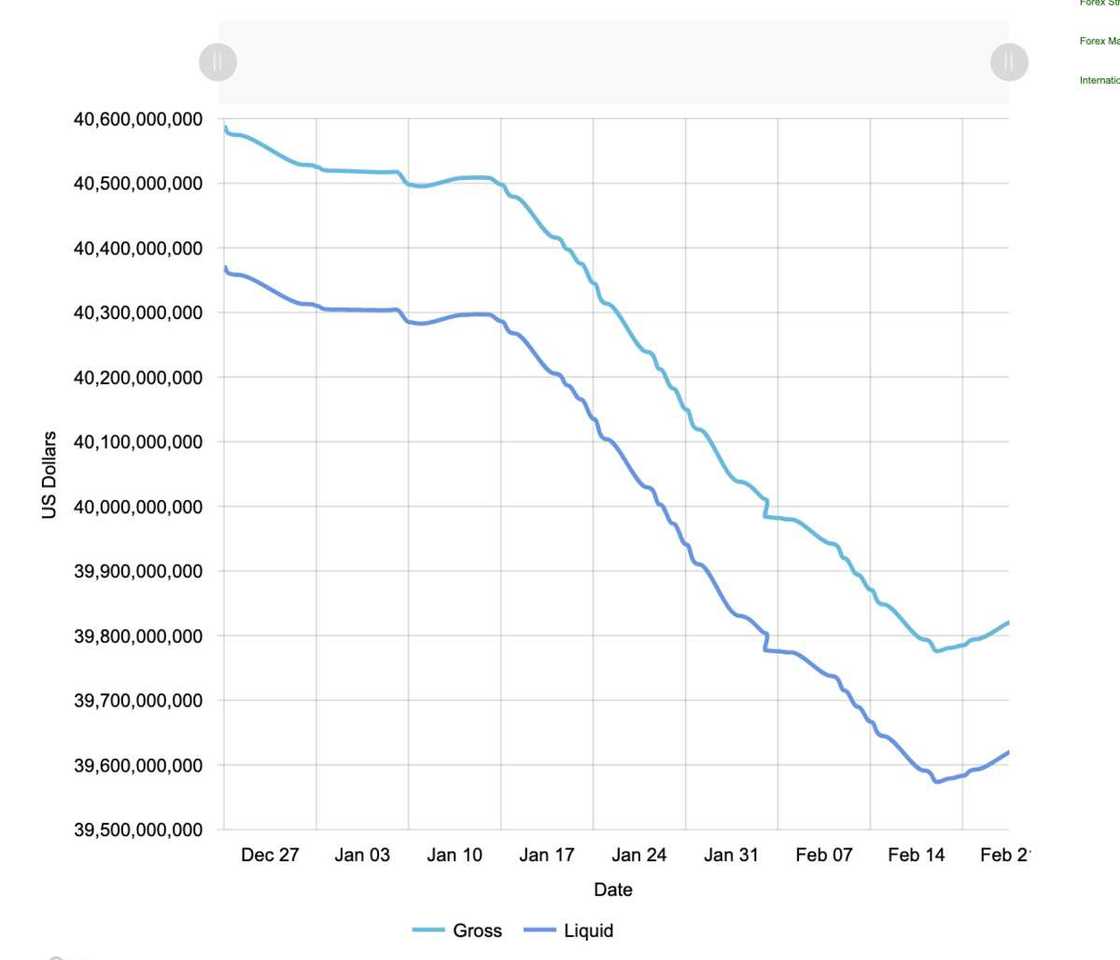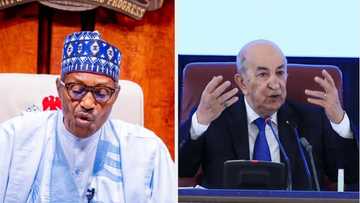Nigeria's Foreign Reserves will Deplete Further in 2022, Despite Rising Oil Prices, Financial Analysts say
- The Central Bank of Nigeria will have to make a tough decision in the coming months, as analysts predict further depletion of Nigeria's foreign reserves
- Since the start of 2022, the Central Bank of Nigeria has withdrawn from Nigeria's external reserves $692.5 million
- This is despite rising oil prices that could have helped strengthen Nigeria's currency which in the past few days have been on a free-fall
Financial analysts are predicting that Nigeria’s Foreign Exchange (FX) reserve may deplete to US$35 billion at the end of 2022 given the limited inflow.
They argued that there is no likelihood of ramping up accretion to the reserves at the pre-pandemic level.
Although the latest Central Bank of Nigeria data shows a slight increase on Monday 21, February 2022 to $39.8billion analysts are strong of the opinion that the reserves will never hit the expected high of $42 billion in 2022.

Source: Facebook
Analyst at CSL Stockbrokers
According to CSL Stockbrokers, an arm of FCMB Bank Group, in a report, said:
PAY ATTENTION: Subscribe to Digital Talk newsletter to receive must-know business stories and succeed BIG!
“CBN is unlikely to ramp up intervention to pre-pandemic levels in the near term as inflows remain tepid. We project the FX reserves to deplete to US$35.00 billion by the end of 2022, translating to goods and services import cover of 5.4 months.
“With that reserve level, we expect the CBN to maintain its current monthly intervention in the FX market of US$1.9 billion, which is 1.6 times lower than the average for Q1-2021 (pre-pandemic level).”
The Vanguard reports that the analyst stressed on the parallel market premium of 32.53% will continue to fuel arbitrage opportunities while FX rationing at the Investors & Exporters (IE) window has magnified the demand pressure at the parallel market.

Read also
Dangote makes over N2bn in 24 hours widening further the gap with Rabiu as Sugar war intensifies
The analysts added:
“Our prognosis is for the premium to remain widened, as the CBN is yet to resume FX sale to the BDCs. Beyond this, corporates and individuals who import items restricted by the CBN will continue to source FX from the black market.”
What other analysts are saying
Also, analysts at CardinalStone Finance said:
“While foreign reserve has accrued in recent months, capital inflows into the country remain weak due to slow FX reforms and uncertainties surrounding dividend and profit repatriation.
“In our view, the issue of dollar demand backlogs would need to be addressed, and the overall FX liquidity framework improved to enhance investors’ confidence.”
Ex-CBN Head criticises Emefiele's decision to ban BDC operators from selling forex
Meanwhile, Obadiah Mailafia, a former deputy governor of the Central Bank of Nigeria (CBN), has criticised the decision of the apex bank to stop providing foreign exchange to bureau de change operators.

Read also
Algeria president announces N41,500 monthly allowance, free medical checkup for unemployed youths
Mailafia said the decision could weaken the value of the naira against the dollar and other foreign currencies, as there might be a scarcity of forex.
With his experience of the banking system in Nigeria, Mailafia said the banks might hoard forex for themselves and sell at a high cost to buyers whenever the lenders want.
Source: Legit.ng



